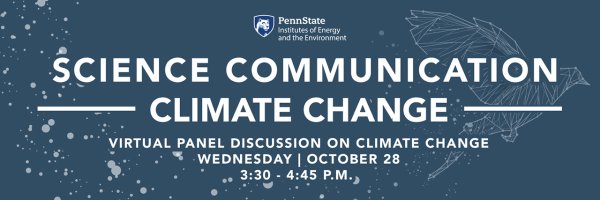
Date and Time
Four leading experts—an atmospheric scientist, an archaeologist, a coral reef biologist, and a professor of media studies—share their diverse perspectives on what needs to be most urgently communicated about climate change now. Join us for an in-depth climate change panel discussion as scientists and journalists relate their experiences communicating their research with the media and other audiences. The panel discussion is free and open to the public, but you must register for the online event. This year's confirmed participants include:
- Nancy Baron, director of science outreach for COMPASS and panel moderator
Nancy Baron holds workshops around the world for academic, government, and NGO scientists helping them make their work relevant to journalists, policymakers, and the public. - Iliana Baums, professor of biology
Iliana Baums is an evolutionary ecologist focusing on applying molecular tools to answer fundamental questions about marine evolution and ecology to guide coral reef conservation efforts. - Kristina Douglass, assistant professor of anthropology
Kristina Douglass is an archaeologist who investigates human-environment interaction, integrating archaeological, paleoecological, ethnohistorical, ethnographic, and biological data to understand the dynamic relationship between communities and their environment over time. - David Malakoff, deputy news editor, Science Magazine
David Malakoff specializes in coverage of science policy, energy, and the environment and reporting on how scientists influence government policy, and how government policy shapes science. - Michael Mann, distinguished professor of atmospheric science
Michael Mann researches the long-term behavior of the climate system and its relationship with possible external (including anthropogenic) influences of climate and the response of geophysical and ecological systems to climate variability and climate change scenarios. - Jessica Myrick, associate professor of media studies
Jessica Myrick’s research examines the role of different emotions in shaping audience responses to health, science and environmental messages, including the role of popular culture media in shaping our attitudes and behaviors related to health, science, and the environment.
